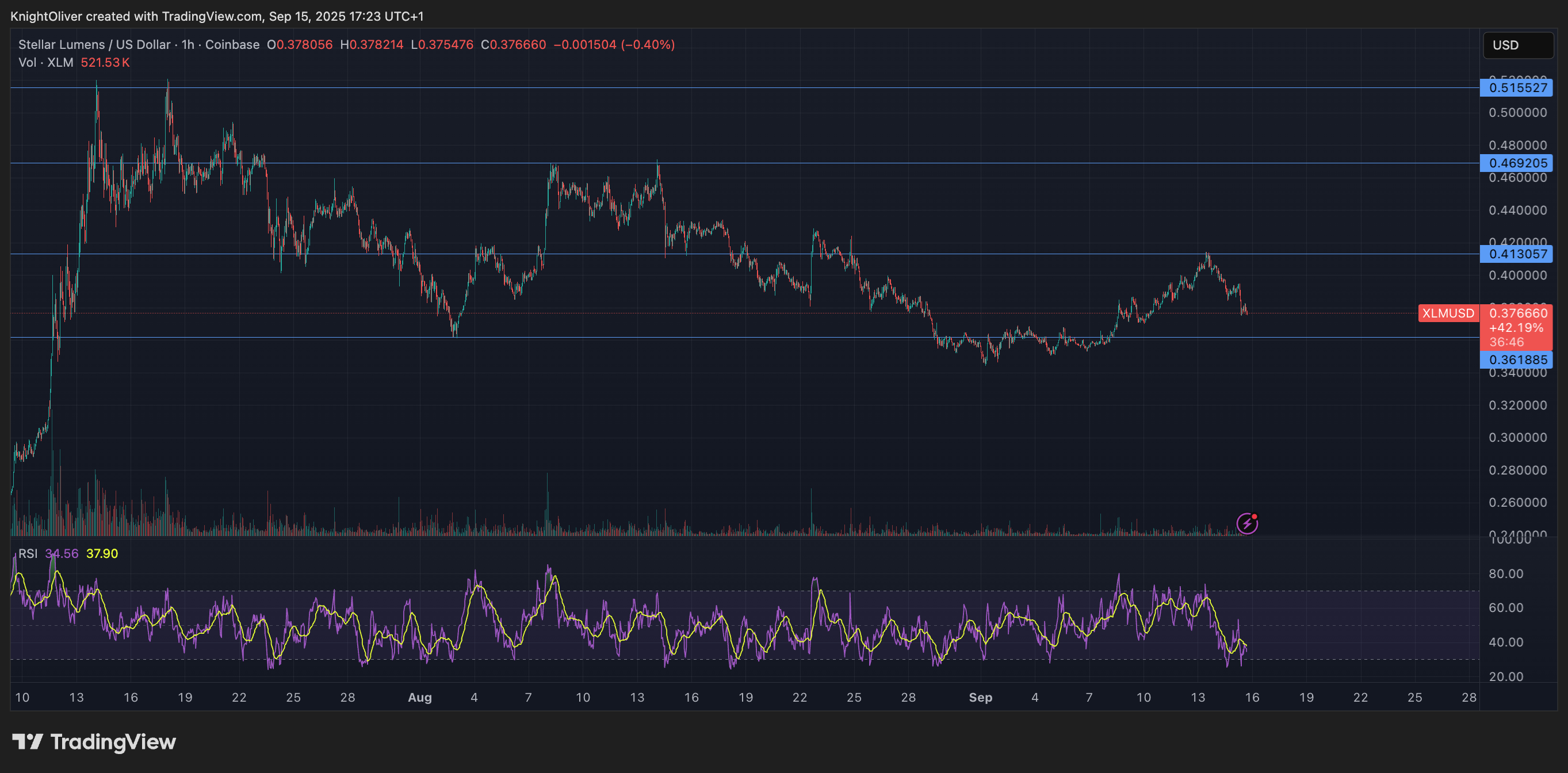Uncategorized
Decentralized Infrastructure Allows America to Compete on AI—Greg Osuri

AI is no longer an emerging technology. It’s here, and it’s becoming the bedrock of modern civilization. Just as electricity transformed the 20th century and the Internet transformed the 21st, AI is reshaping how we work, govern, and live. Soon, every major institution, from hospitals to the military, will integrate AI into their core operations, raising the stakes for the infrastructure that underpins it.
Despite this demand, our infrastructure isn’t keeping pace. In 2024, U.S. data centers used ~200 terawatt-hours of electricity, enough to power Thailand for a year. The same estimate holds that by 2028, AI power usage is predicted to reach between 165 and 326 terawatt-hours annually, enough to power 22% of U.S. households. AI workloads are pushing energy and compute systems well beyond their limits, creating an exponential demand that leaves our power grid lagging behind as it struggles to scale even incrementally.
This mismatch is more than a technical issue. As demand for AI ramps up, these bottlenecks in national energy supply and compute access will slow development across every sector, limiting its transformative potential.
The United States is leading, for now. But we are in a sprint, and China is gaining ground. Their DeepSeek model R1 rivals top-tier U.S. models. DeepSeek’s success proves that speed, scale and efficiency can radically shift the balance of global AI power. China’s AI push is well-funded, coordinated and strategic. If DeepSeek is any indication of China’s momentum, we are far behind them.
It won’t matter who leads in algorithms if the U.S. keeps treating infrastructure as an afterthought, because we’re on track to lose the platform war. The future of AI must be built on freedom, transparency, and trust, not surveillance and control. That is America’s edge—and to that we must prioritize the energy crisis it’s creating.
In this context, massive, centralized data centers are obsolete. They’re rigid, expensive, and confined to one geographic location. Even worse, they create single points of failure. If one power grid goes down or is overheated, an entire segment of the country is plunged into a technological dark age.
By contrast, decentralized systems free our potential, allowing American innovation to scale with agility. Smaller compute clusters can run near sources of localized renewable energy, such as solar, wind, or geothermal energy, or take advantage of underutilized compute power sitting idle in homes, campuses, and communities. Decentralized systems also better position American technology to survive in a world where threats are increasingly moving into the digital space. In times of crisis, or cyberattacks from nefarious actors, distributing compute across individual nodes ensures continuity, whereas centralized systems collapse.
The way forward
So what’s the path forward?
We start by incentivizing distributed infrastructure, making it easier and more profitable to build beyond hyperscale facilities. We fund federal research and development for distributed computing to accelerate innovation in the public and private sectors. To host edge computing powered by local clean energy, we open up federal land and institutions. And finally, we streamline support for next-generation energy sources like advanced nuclear grids, so the future grid can match the volume of AI energy demand.
Through this approach, we reduce permit delays and unleash the latent value in our nation’s underused assets, from rural substations to decommissioned industrial zones. Our energy crisis cannot be solved with a single fix. But taken together, these steps serve as a resilient model for America to lead in AI development.
This shift does much more than fix our energy bottleneck—it reshapes access. Developers can build independently of Big Tech without begging for compute. These infrastructure policies would level the field for smaller players to build and deploy advanced AI models, decentralizing opportunity itself.
AI is set to shape every society and sector it touches. But ultimately, whoever controls the foundation will determine which values guide that outcome. We can let foreign powers consolidate that foundation, outstripping our capacities to build and entrenching centralization, surveillance, and control. Or we can leverage America’s edge and develop our infrastructure at the pace with which energy demands to guarantee resilience, transparency and freedom.
If the U.S. wants to lead in AI, we must act decisively. We cannot rely on legacy systems or lethargic bureaucracy. We don’t need more studies or more panels. If we want to define the future on our terms, we need to build, and we need to build now.
Let’s get to work.
Uncategorized
Asia Morning Briefing: Fragility or Back on Track? BTC Holds the Line at $115K

Good Morning, Asia. Here’s what’s making news in the markets:
Welcome to Asia Morning Briefing, a daily summary of top stories during U.S. hours and an overview of market moves and analysis. For a detailed overview of U.S. markets, see CoinDesk’s Crypto Daybook Americas.
Bitcoin (BTC) traded just above $115k in Asia Tuesday morning, slipping slightly after a strong start to the week.
The modest pullback followed a run of inflows into U.S. spot ETFs and lingering optimism that the Federal Reserve will cut rates next week. The moves left traders divided: is this recovery built on fragile foundations, or is crypto firmly back on track after last week’s CPI-driven jitters?
That debate is playing out across research desks. Glassnode’s weekly pulse emphasizes fragility. While ETF inflows surged nearly 200% last week and futures open interest jumped, the underlying spot market looks weak.
Buying conviction remains shallow, Glassnode writes, funding rates have softened, and profit-taking is on the rise with more than 92% of supply in profit.
Options traders have also scaled back downside hedges, pushing volatility spreads lower, which Glassnode warns leaves the market exposed if risk returns. The core message: ETFs and futures are supporting the rally, but without stronger spot flows, BTC remains vulnerable.
QCP takes the other side.
The Singapore-based desk says crypto is “back on track” after CPI confirmed tariff-led inflation without major surprises. They highlight five consecutive days of sizeable BTC ETF inflows, ETH’s biggest inflow in two weeks, and strength in XRP and SOL even after ETF delays.
Traders, they argue, are interpreting regulatory postponements as inevitability rather than rejection. With the Altcoin Season Index at a 90-day high, QCP sees BTC consolidation above $115k as the launchpad for rotation into higher-beta assets.
The divide underscores how Bitcoin’s current range near $115k–$116k is a battleground. Glassnode calls it fragile optimism; QCP calls it momentum. Which side is right may depend on whether ETF inflows keep offsetting profit-taking in the weeks ahead.

Market Movement
BTC: Bitcoin is consolidating near the $115,000 level as traders square positions ahead of expected U.S. Fed policy moves; institutional demand via spot Bitcoin ETFs is supporting upside
ETH: ETH is trading near $4500 in a key resistance band; gains are being helped by renewed institutional demand, tightening supply (exchange outflows), and positive technical setups.
Gold: Gold continues to hold near record highs, underpinned by expectations of Fed interest rate cuts, inflation risk, and investor demand for safe havens; gains tempered somewhat by profit‑taking and a firmer U.S. dollar
Nikkei 225: Japan’s Nikkei 225 topped 45,000 for the first time Monday, leading Asia-Pacific gains as upbeat U.S.-China trade talks and a TikTok divestment framework lifted sentiment.
S&P 500: The S&P 500 rose 0.5% to close above 6,600 for the first time on Monday as upbeat U.S.-China trade talks and anticipation of a Fed meeting lifted stocks.
Elsewhere in Crypto
Uncategorized
Wall Street Bank Citigroup Sees Ether Falling to $4,300 by Year-End

Wall Street giant Citigroup (C) has launched new ether (ETH) forecasts, calling for $4,300 by year-end, which would be a decline from the current $4,515.
That’s the base case though. The bank’s full assessment is wide enough to drive an army regiment through, with the bull case being $6,400 and the bear case $2,200.
The bank analysts said network activity remains the key driver of ether’s value, but much of the recent growth has been on layer-2s, where value “pass-through” to Ethereum’s base layer is unclear.
Citi assumes just 30% of layer-2 activity contributes to ether’s valuation, putting current prices above its activity-based model, likely due to strong inflows and excitement around tokenization and stablecoins.
A layer 1 network is the base layer, or the underlying infrastructure of a blockchain. Layer 2 refers to a set of off-chain systems or separate blockchains built on top of layer 1s.
Exchange-traded fund (ETF) flows, though smaller than bitcoin’s (BTC), have a bigger price impact per dollar, but Citi expects them to remain limited given ether’s smaller market cap and lower visibility with new investors.
Macro factors are seen adding only modest support. With equities already near the bank’s S&P 500 6,600 target, the analysts do not expect major upside from risk assets.
Read more: Ether Bigger Beneficiary of Digital Asset Treasuries Than Bitcoin or Solana: StanChart
Uncategorized
XLM Sees Heavy Volatility as Institutional Selling Weighs on Price

Stellar’s XLM token endured sharp swings over the past 24 hours, tumbling 3% as institutional selling pressure dominated order books. The asset declined from $0.39 to $0.38 between September 14 at 15:00 and September 15 at 14:00, with trading volumes peaking at 101.32 million—nearly triple its 24-hour average. The heaviest liquidation struck during the morning hours of September 15, when XLM collapsed from $0.395 to $0.376 within two hours, establishing $0.395 as firm resistance while tentative support formed near $0.375.
Despite the broader downtrend, intraday action highlighted moments of resilience. From 13:15 to 14:14 on September 15, XLM staged a brief recovery, jumping from $0.378 to a session high of $0.383 before closing the hour at $0.380. Trading volume surged above 10 million units during this window, with 3.45 million changing hands in a single minute as bulls attempted to push past resistance. While sellers capped momentum, the consolidation zone around $0.380–$0.381 now represents a potential support base.
Market dynamics suggest distribution patterns consistent with institutional profit-taking. The persistent supply overhead has reinforced resistance at $0.395, where repeated rally attempts have failed, while the emergence of support near $0.375 reflects opportunistic buying during liquidation waves. For traders, the $0.375–$0.395 band has become the key battleground that will define near-term direction.

Technical Indicators
- XLM retreated 3% from $0.39 to $0.38 during the previous 24-hours from 14 September 15:00 to 15 September 14:00.
- Trading volume peaked at 101.32 million during the 08:00 hour, nearly triple the 24-hour average of 24.47 million.
- Strong resistance established around $0.395 level during morning selloff.
- Key support emerged near $0.375 where buying interest materialized.
- Price range of $0.019 representing 5% volatility between peak and trough.
- Recovery attempts reached $0.383 by 13:00 before encountering selling pressure.
- Consolidation pattern formed around $0.380-$0.381 zone suggesting new support level.
Disclaimer: Parts of this article were generated with the assistance from AI tools and reviewed by our editorial team to ensure accuracy and adherence to our standards. For more information, see CoinDesk’s full AI Policy.
-

 Business11 месяцев ago
Business11 месяцев ago3 Ways to make your business presentation more relatable
-

 Fashion11 месяцев ago
Fashion11 месяцев agoAccording to Dior Couture, this taboo fashion accessory is back
-

 Entertainment11 месяцев ago
Entertainment11 месяцев ago10 Artists who retired from music and made a comeback
-

 Entertainment11 месяцев ago
Entertainment11 месяцев ago\’Better Call Saul\’ has been renewed for a fourth season
-

 Entertainment11 месяцев ago
Entertainment11 месяцев agoNew Season 8 Walking Dead trailer flashes forward in time
-

 Business11 месяцев ago
Business11 месяцев ago15 Habits that could be hurting your business relationships
-

 Entertainment11 месяцев ago
Entertainment11 месяцев agoMeet Superman\’s grandfather in new trailer for Krypton
-

 Entertainment11 месяцев ago
Entertainment11 месяцев agoDisney\’s live-action Aladdin finally finds its stars





